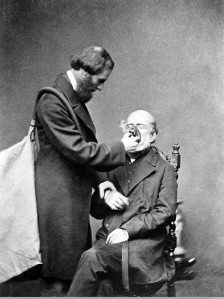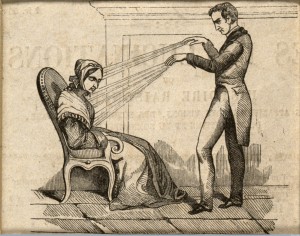 My father endured cancer for three years prior to his death. During that time, he and my mother attended several doctors on numerous occasions. All seemed knowledgeable about their work, though my parents liked some more than others. A troubling feature, however, was that rarely could either of my parents explain to me what the doctor had told them. This does not seem to be an insignificant or rare experience. Studies indicate that two-thirds of patients are discharged from hospital unable to explain their diagnosis, and a majority of patients misunderstand directions after a visit to their doctor’s office.
My father endured cancer for three years prior to his death. During that time, he and my mother attended several doctors on numerous occasions. All seemed knowledgeable about their work, though my parents liked some more than others. A troubling feature, however, was that rarely could either of my parents explain to me what the doctor had told them. This does not seem to be an insignificant or rare experience. Studies indicate that two-thirds of patients are discharged from hospital unable to explain their diagnosis, and a majority of patients misunderstand directions after a visit to their doctor’s office.
At a systemic level, the discussion of our health is smothered by cost benefit analysis, insurance reimbursement codes, timed physician visits, productivity enhancements, technology efficiencies, informed consumer choice, and so on. The language of business permeates almost all facets of our social considerations, but we rarely reflect on whether that should be the case. The political and cultural commentator, David Brooks, observes that, “Many people today find it easy to use the vocabulary of entrepreneurialism, whether they are in business or social entrepreneurs.” He goes on to assert that, “People are less good at using the vocabulary of moral evaluation, which is less about what sort of career path you choose than what sort of person you are… [We] convert moral questions into resource allocation questions; questions about how to be into questions about what to do.” This echoes some of the sensible yet heretical observations of Alain de Botton in his book, Religion for Atheists, who notes that our environments are cluttered with commercial messages rather than messages that add to the quality of our lives.
Tim Jackson, Professor of Sustainable Development at the University of Surrey, England, suggests that chasing efficient productivity is not always either good business or, more importantly, of real value. Would you, for example, rather have a doctor treat you quickly and with efficiency (i.e. as a “thing”) or with patience, flexibility and concern? At a systemic level, healthcare is reduced to inhuman formulas and a language that the people it serves are unfamiliar with. As Johnson says, “The care and concern of one human being for another is a peculiar ‘commodity’… It becomes degraded through trade… Even to speak of reducing the time involved is to misunderstand its value.”
 The authentic, attentive connection between patient and care-provider, between the patient’s family and the medical staff, and between the various healthcare team members is crucial. Several studies indicate that medical miscommunications increase the incidence of adverse events and serious errors in critical care settings. As Nirmal Joshi notes in this recent New York Times article, “A doctor’s ability to explain, listen and empathize has a profound impact on a patient’s care.” Our desire for clarity and connection is sharpened during traumatic, isolating experiences, such as those arising for sick patients. At precisely the time we are at our most vulnerable and in need of focused human connection, we encounter the healthcare industry as a business and the individuals working within it as corporate employees.
The authentic, attentive connection between patient and care-provider, between the patient’s family and the medical staff, and between the various healthcare team members is crucial. Several studies indicate that medical miscommunications increase the incidence of adverse events and serious errors in critical care settings. As Nirmal Joshi notes in this recent New York Times article, “A doctor’s ability to explain, listen and empathize has a profound impact on a patient’s care.” Our desire for clarity and connection is sharpened during traumatic, isolating experiences, such as those arising for sick patients. At precisely the time we are at our most vulnerable and in need of focused human connection, we encounter the healthcare industry as a business and the individuals working within it as corporate employees.
While it is far from the case that medical professionals are uncaring, it should not be surprising, perhaps, that in an industrial context their capacity to forge empathetic connection or to communicate with clarity is diminished. There is widespread recognition that communication is an essential feature of optimal health practice. “Empathic engagement is the pillar of the patient-physician relationship,” said Prof. Mohammadreza Hojat in the Association of American Medical Colleges Reporter issue of June 2012. Adam Grant, the Wharton psychologist, references an experiment illustrating how radiologists perform better when brought to a perspective of humanness – seeing others that our actions affect. Despite the clear clinical and human benefits to effective communication, Joshi notes that, “On average, physicians wait just 18 seconds before interrupting patients’ narratives of their symptoms.”
 Recalibration of what we choose to value at the systemic level may be too much to ask of simple conversations. Enhancing the diligence shown by healthcare providers to their practice of the art of conversation, however, can have direct beneficial effects upon the clinical and emotional outcomes for individual patients. Ironically, if the healthcare industry gave more attention to this less tangible yet more valuable practice of conversation, the long term benefits would accrue both to patients and to the bottom line.
Recalibration of what we choose to value at the systemic level may be too much to ask of simple conversations. Enhancing the diligence shown by healthcare providers to their practice of the art of conversation, however, can have direct beneficial effects upon the clinical and emotional outcomes for individual patients. Ironically, if the healthcare industry gave more attention to this less tangible yet more valuable practice of conversation, the long term benefits would accrue both to patients and to the bottom line.

A significant problem driven by a dysfunctional system that requires doctors to spend much more time now on administrative tasks that detract from patient interaction, and an institutional economy that disincentivizes and short-changes sufficient time spent with patients.
http://www.npr.org/blogs/health/2012/05/24/153583423/whats-up-doc-when-your-doctor-rushes-like-the-road-runner
That is a great piece by NPR, Michael. Thanks for sharing that.
Great topic! My wife experienced a similar lack of communication recently when she went in for blood work analysis. The doctor or nurse never discussed her blood work results with her, choosing instead to mail out the results with a note stating “follow recommendations as discussed.” There was no discussion!
Thanks Dusty. Your and your wife’s experience illustrates how the apparently simple things have a substantial effect.